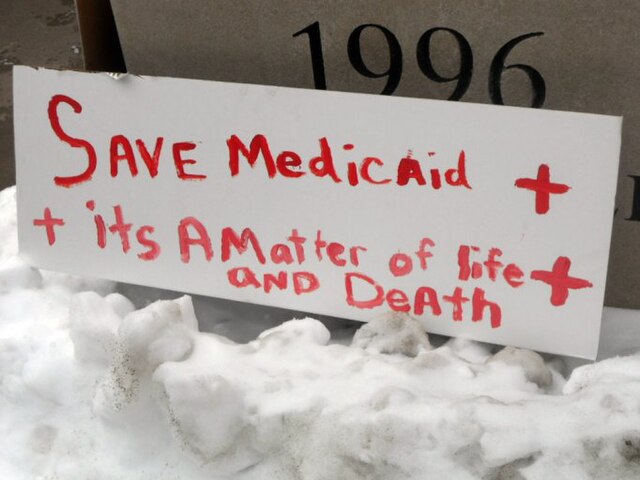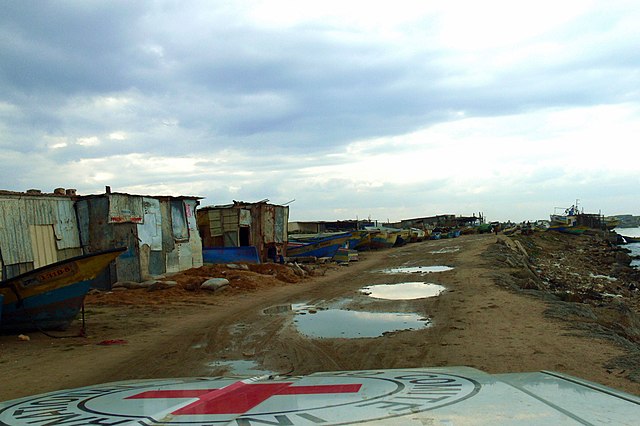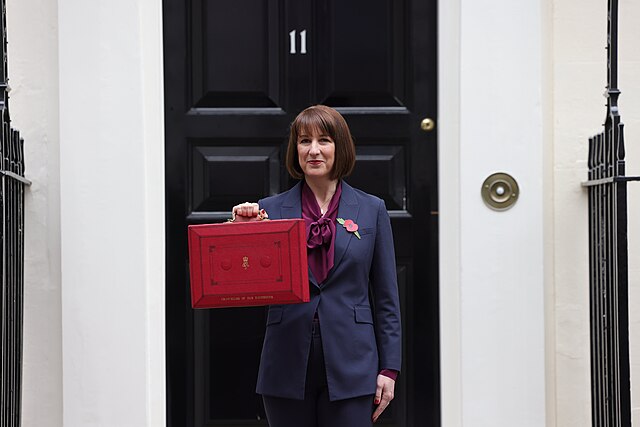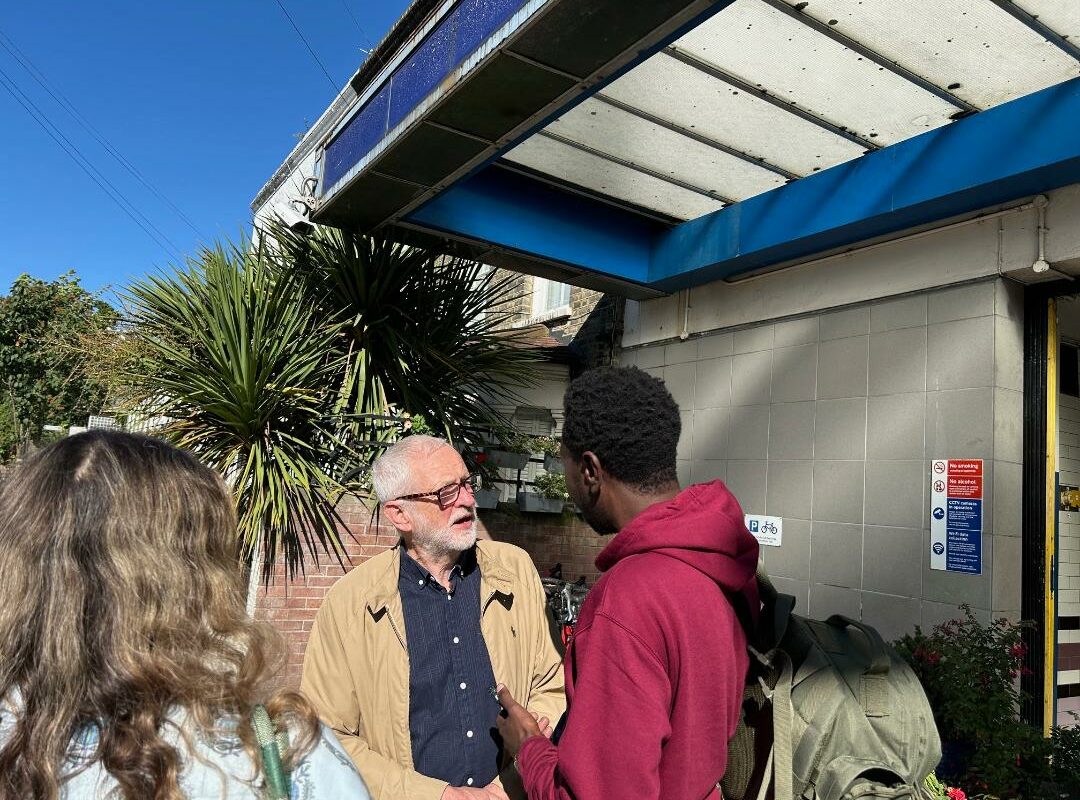What’s it like for my partner and I, as two Autistic/ADHD people in Trump’s America? It’s overwhelming, to say the least.
We have been forced to witness the rise of MAGA, an administration that we did not vote into office. They claim they want to “Make America Great Again,” but it’s clear they only wish to do that for a certain group of people. They have won on a campaign of hate, and now the quiet parts are being said aloud. U.S. Immigration and Customs Enforcement (ICE) is unleashed. Due process (the constitutional right to fair legal procedures) is now ignored, and US-born citizens are being mistakenly detained. Now there are even threats of sending citizens to camps in El Salvador. The dehumanization is accelerating and it’s terrifying.
It feels like a nightmare we are not waking up from.
We’re watching billionaires such as Elon Musk, who has donated $250 million to MAGA, gain governmental power without being elected. He heads a newly formed department, Department of Government Efficiency (DOGE), with access to our data. The justification? Cutting “wasteful spending”. However, it looks more like they are targeting our lifelines, programs such as Medicaid, to line their own pockets. These aren’t handouts. We have paid into these systems with our taxes and now they want to strip us of those benefits.
Like many disabled folks in America, I rely on Medicaid to survive. Medicaid is a public health program in the United States for people with low income, old age, or disabilities. Without it, I would not be able to afford the care needed for managing my Autism, ADHD, chronic illnesses, and a heart condition that requires regular medication and monitoring. The private healthcare system here is expensive and even if you are insured through the Affordable Care Act (ACA), the out-of-pocket costs can be astronomical. Doctor’s visits, lab work, and specialist care can come with high copays or deductibles, making consistent treatment out of reach for many. A single ER visit can bankrupt a person. It’s very common to find people turning to crowdfunding platforms, such as GoFundMe, just to pay medical bills. The barriers to access affordable healthcare reflect a broken system.
Medicaid is the only reason I can afford the care that keeps me alive, but qualifying for it comes with strings attached. Disabled folks are expected to survive under impossible restrictions such as: strict asset limits, income caps, the crushing costs of healthcare, and rapidly rising costs of living. For example, Medicaid recipients can’t have more than $2,000 in savings or they risk losing their coverage. That means you can’t plan for emergencies or try to build a financial cushion. We’re forced into a poverty wage, choosing between healthcare and financial stability. It’s a system that almost seems intentionally designed to keep folks trapped in poverty.
To make matters worse, healthcare in the United States is often tied to employment, but not all jobs provide benefits. Many folks, especially disabled people, end up in service jobs, gig work, or part-time roles that don’t offer health insurance at all. Even if you can work, the jobs available are often physically or mentally unsustainable, and still leave you without coverage. It’s a system that feels deliberately hostile towards folks like me.
Now, with Medicaid programs being quietly dismantled in multiple states and right-wing politicians threatening it on a national level, I am left wondering: what happens to us? There is no backup plan. No safety net. If Medicaid is taken away, I’ll likely go without treatment, which could lead to hospitalization, or worse.
For many disabled folks, losing Medicaid means losing access to vital medication, treatments, and in-home support services. Without it, managing chronic conditions, staying employed, or even handling daily tasks can become increasingly difficult. Some may even be evicted when they can no longer work. Others drain their savings on out-of-pocket medical costs and fall behind on rent, being forced to choose between medication or shelter.
As a result, loss of care can lead directly to homelessness. Many end up in shelters or on the streets. Others are institutionalized or pushed into unsafe and exploitative living situations to survive. Without stable access to healthcare, housing, and basic support, the issue isn’t just about quality of life, it’s about staying alive.
Then there’s Robert F. Kennedy Jr., appointed Secretary of Health and Human Services despite spreading dangerous rhetoric about autistic people. For instance, during an April 2025 press conference, he claimed:
“Autism destroys families, and more importantly, it destroys our greatest resource, which is our children. These are children who should not be suffering like this,” he said. “These are kids who will never pay taxes. They’ll never hold a job. They’ll never play baseball. They’ll never write a poem. They’ll never go out on a date. Many of them will never use a toilet unassisted.”
This statement was widely reported and met with significant backlash from the autistic community and advocates who recognize the diverse capabilities and contributions of individuals on the autism spectrum. Robert’s claims are not only dehumanizing and an echo to a dark history, but one rooted in eugenics. One I never thought I would see repeat itself within my lifetime.
The signs are crystal clear. What we have shared in this article, is but a scratch on the surface to the atrocities happening in America right now. I am truly scared for us.
We’ve reached our breaking point. We’re not fleeing out of weakness. We’re leaving for survival. We are seeking safety, dignity, and a chance to thrive.
As if all that weren’t enough, each day is filled with headlines that make it harder to believe in any future here. One recent incident in particular stood out to me: A white woman named Shiloh Hendrix in Rochester, Minnesota was captured on video in a playground using a racial slur against a 5-year-old Black autistic child. When confronted by bystanders, she not only admitted to using the slur but kept repeating it several times trying to justify her actions by accusing the child of going through her toddler’s diaper bag.
After the video went viral, Hendrix launched a fundraiser on the Christian crowdfunding platform, GiveSendGo, claiming she and her family were receiving threats and needed to relocate. Her campaign has raised more than $750,000. Many of the donations were accompanied by openly racist comments, enough to cause the platform to disable the comment section.
This is a chilling reminder of what marginalized communities face in this country and how hate not only spreads, but is often rewarded. It’s a reflection not just of individuals, but of a society that increasingly shows us who it protects, and who it leaves behind. A reality that seems to be mirrored by our current government.
If someone like her can raise over $750,000 fueled by hate, surely an autistic couple simply asking for a chance at safety and stability can reach our goal too — right?
My partner and I are trying to relocate to a country where we can live with basic dignity. Where the system we contribute to offers us a future. Although we have worked hard and have advanced degrees, in America, they don’t guarantee stability. Our disabilities are invisible, but the barriers we face are not. We have been locked out of opportunities because of ableist systems and lack of accommodations. There is no American Dream left for us here.
From our research, I really believe Germany can offer this to us. Plus, this will be a familiar place to me. I spent my youth in Germany while my dad was stationed overseas. Germany offers national healthcare, protections for disabled residents, and a path for self-employed creatives like me to legally work and contribute. It’s not perfect, but it offers stability and structure we simply can’t find here. We’ve researched Germany’s freelance visa and disability rights laws, and this path is both legally viable and humane. Our country appears to be slipping into authoritarianism, and we’ve given up. In order to survive, we need to leave.
Thank you for reading our story,
Elle and Yarr
Elle and Yarr are trying to relocate to Germany and are raising funds to do so. The amount will cover relocation costs, visa fees, healthcare, start-up housing, and the legal and logistical steps required to move two people and two cats abroad safely. You can donate or share here.




